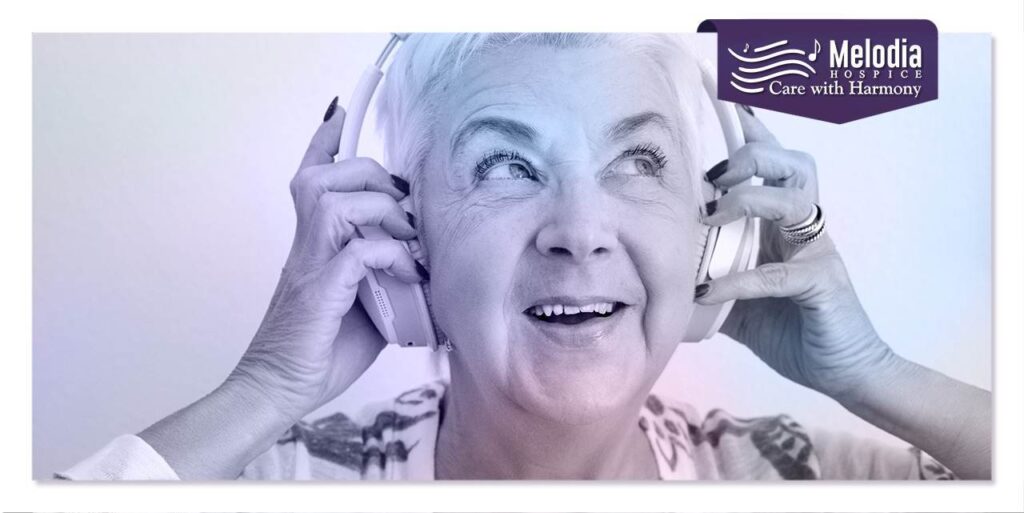When conventional medicine cannot alleviate the symptoms of a medical condition, people may find solace in music therapy. Music therapy sessions can help hospice patients deal with treatment’s emotional and psychological stresses.
Music therapists who have passed the board certification process can modify their methods to serve individual patients better. Many studies have shown that music therapy can effectively treat various medical issues. Playing an instrument, singing, or even writing and performing original music in front of an audience are just a few ways to deepen your involvement in music. Music has many practical applications, including but not limited to those listed above.
Patients receiving hospice or palliative care do not incur additional costs to access music therapists. Several studies have shown promise for the use of music therapy in helping those with terminal illnesses. Research has shown that social music listening has a calming effect on the brain and body. Patients can use music in various ways, including making and listening to it and performing on musical instruments in different settings. Music therapy is very effective in palliative care, alleviating multiple physical and mental issues.
Recent studies suggest that those suffering from medical conditions that erode memory, such as Alzheimer’s disease or dementia, may benefit from music therapy. Sometimes it’s the short-term memory that suffers more than the long-term. A compensatory recall is a word used to explain how some persons can compensate for their impaired ability to remember recent events.
Listening to songs from your youth is a great way to reminisce about simpler times. The research suggests that memories sparked by music are stored in long-term memory rather than the area of the brain often associated with such recollections. Specific memories can be retrieved, and neuronal connections in the brain can be re-established with the help of music therapy. Music therapy in hospices is helpful because it improves patients’ quality of life and emotional well-being, which are crucial throughout the dying process.
Hospice patients with problems sleeping may find that listening to soothing music helps. If your health is seriously compromised, you may find getting a good night’s rest challenging. Negative emotions like despair may keep depressed people from sleeping well.
Music therapy, in contrast to sleep aids, has never been associated with any unwanted effects. Because of this, a reliable remedy for insomnia is at your disposal. The brain can be coaxed into a more restful slumber when the pre-sleep cycle winds down with the help of music therapy. Hospice patients with trouble sleeping may find that listening to music helps them tune out external stimuli and unwind.
Palliative care patients often receive a musical therapy prescription to help them deal with their suffering. Several studies have demonstrated that music can assist in reducing the distressing thoughts and feelings accompanying physical pain.
Patients in the hospital could feel more at ease if they hear music that reminds them of home. As a result, the brain’s pain-processing abilities will likely suffer. Many studies have demonstrated soothing music’s physiological and psychological benefits. Furthermore, music’s mild effects come from stimulating the auditory cortex, which is located near the back of the skull. Researchers have found that music therapy is beneficial for many patients in hospice care.
Music therapy has been demonstrated to help hospice patients manage their grief. Those fighting terminal illnesses are under tremendous stress, which can lead to anxiety and mood issues.
Listening to music is a tried-and-true method for easing the pain of loss and relieving anxiety. Some people get relief from their grief by listening to music, which triggers the release of “happy” neurotransmitters in the brain. The autonomic nervous system can be calmed using musical instruments or passive listening. Reducing anxiety and improving hospice patients’ disposition can extend their lives.
To foster a sense of community, it is essential to facilitate communication among members.
Music therapy in palliative care settings can benefit those with dementia and Alzheimer’s. Some people may find it easier to express themselves through music than other means of expression.
Those that are nonverbally expressive may benefit from music therapy. Music therapy allows for observing behavioral patterns through nonverbal cues such as the patient’s facial expressions and bodily movements. The patient’s ability to express themselves musically is therapeutic for the patient and his or her loved ones. According to a recent study, patients who listened to music during medical treatment felt more connected to their colleagues and less alone.
Palliative and hospice care patients participating in music therapy report significant improvements in pain management and quality of life. Check your eligibility for music therapy if it might assist you.
Music therapists claim that unique musical experiences can aid those receiving palliative care and their loved ones in coming to terms with a terminal illness. Music therapists of all stripes can put this chapter’s insights about the field’s health benefits to good use by educating their patients of all ages. Those with serious health problems may benefit from listening to music that brings back happy memories of friends, family, and unique places. Songwriting and improvisation can help people in music therapy develop their musical and individual identities. Grieving individuals may find comfort in their loved ones’ recorded musical compositions. Music therapists employ various strategies to aid their patients in de-stressing and managing their symptoms. Musical therapy is an option that trained therapists and teachers have explored.
Why does music affect people so much?

Surprisingly, some of our patients responded more to music than any other treatment we’ve tried. The potency of music can be experienced through listening to a favorite song or by sharing a strong emotional reaction to a piece. It has been reported that people with advanced dementia can finish singing “You Are My Sunshine” by themselves. The music video’s soundtrack reportedly stimulated many patients who would not have otherwise spoken or moved. Music therapists express their care and enthusiasm for their patients through the music they perform for them.
You are fortunate to live in a time when music therapists and music therapy programs are readily available.
What makes music therapy so effective?

In addition to its standard services, Melodia Care also provides various complementary and alternative therapies. According to several studies, music therapy sessions help patients relax, feel at ease, and boost their overall health and well-being. These sessions feature presentations and performances of a diverse spectrum of musical styles. Patients and their therapists have found that listening to music during therapy sessions improves their ability to deal with and gain insight into their current difficulties.
According to Melodia, the goal of music therapy in hospitals and hospices is to help terminally ill patients retain their sense of self-worth and control as they near the end of life. It’s essential to think about whether or not you or a loved one could use music therapy to alleviate the symptoms of a physical or mental illness. Families who have lost a loved one should have access to bereavement services to help ease the emotional and financial burdens they face in the lead-up to and in the wake of the death.
To maximize its therapeutic benefits, music therapy for Melodia care should be provided only by credentialed professionals. Suppose doctors want to give their patients the best care possible. In that case, they need to stay current on the latest practice guidelines while simultaneously holding on to the years of hard-earned clinical expertise and skills they’ve accumulated.
Hospice patients and their loved ones participating in music therapy sessions report an increased ability to recall and adjust to significant life changes. Recent research has shown that people with dementia, such as Alzheimer’s disease, can benefit from music therapy sessions.
So, the term “traditional music therapy session” is rarely used because there is no such thing. Patients benefit most from attending these sessions since they are tailored to their specific requirements. During the session, you will not only be able to sing and perform instruments, but you will also have the option to write new music. A person’s social and intellectual connections to the people and places around them and their physical, mental, spiritual, emotional, and cognitive well-being can all be influenced by musical compositions. In addition to what has already been proven, music can also affect how one sees the world.
It’s understandable if a patient refuses to participate in music therapy, even if they strongly wish to avoid it. Relaxation, regular breathing, the induction of restlessness, and relaxation are all possible side effects of treatment sessions that involve sitting and listening to music chosen by the therapist. People with impairments can benefit from music therapy even if they can’t take part in every aspect of the treatment or experience its full effects.
You can reach Melodia Care at any time of day or night by contacting us through our 24/7 online customer support chat or by calling 1-888 635-6347 (MELODI-7).







